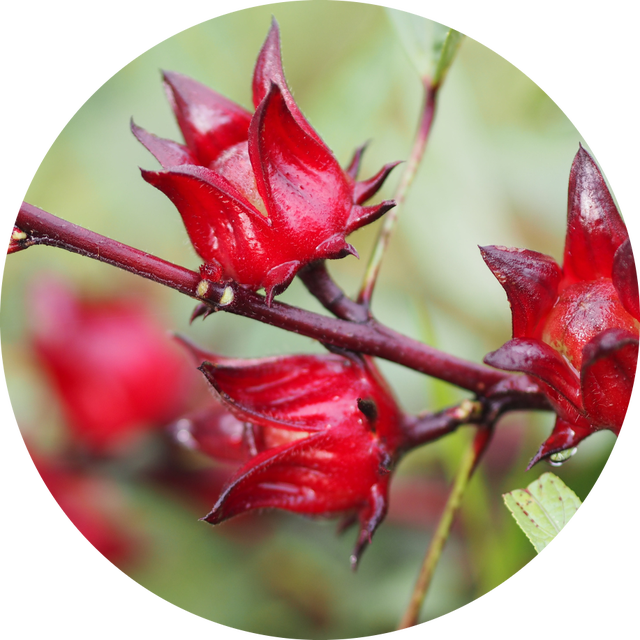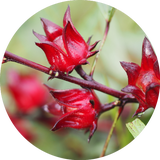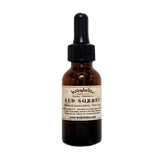- PLANT MEDICINE
- >
- Tinctures
- >
- RED SORREL (ROSELLE) TINCTURE
RED SORREL (ROSELLE) TINCTURE
Family: Malvaceae
Genus: Hibiscus
Species: sabdariffa
Synonyms: Roselle, Indian sorrel
Common Names: Jamaica sorrel, roselle, red sorrel, Florida cranberry
Parts Used: Calyx (sepals), leaves, seeds
Main Actions: Antioxidant, anti-inflammatory, hypotensive
Other Actions: Diuretic, antispasmodic, hepatoprotective
Description: Jamaica sorrel is a tropical plant with reddish stems and lobed leaves. It produces large, showy red flowers with prominent sepals. The calyces are used for various culinary and medicinal purposes.
Tribal and Herbal Medicine Uses: Traditional uses include treating hypertension, fever, urinary tract infections, and digestive issues.
Plant Chemicals: Anthocyanins, flavonoids, organic acids, polysaccharides
Biological Activities and Clinical Research: Studies suggest its potential in reducing blood pressure, lowering cholesterol levels, and exhibiting antioxidant properties.
Current Practical Uses: Widely consumed as a beverage, used in jams, jellies, sauces, and herbal teas.
Main Preparation Method: Infusion, decoction, juice extraction
Main Actions (in order): Antioxidant, anti-inflammatory, hypotensive
Main Uses: Hypertension management, antioxidant support, digestive aid
Properties/Actions Documented by Research: Antioxidant, hypotensive
Other Properties/Actions Documented by Traditional Use: Diuretic, hepatoprotective, ACE-inhibitor, AGE-inhibitor, analgesic, anti-aging, anti-atherosclerotic, antibacterial, antidiabetic, antifungal, anti-hypertensive, anti-inflammatory, antimicrobial, antimutagenic, antioxidant, antiobesity, antispasmodic, antiviral, anxiolytic (reduces anxiety), cancer preventative, cardioprotective (protects heart), digestive enzyme inhibitor, diuretic, febrifuge (reduces fever), hepatoprotective (liver protector), hepatotonic (tones, balances, strengthens the liver), hypocholesterolemic (lowers cholesterol), hypoglycemic, immunomodulator, nephrotonic (protects kidneys), neuroprotective (protects brain), platelet aggregation inhibitor, UV-protectant, vasorelaxant (relaxes blood vessels), vulnerary (heals wounds)
Cautions: May lower blood pressure excessively in some individuals. Pregnant women should consult a healthcare provider before consuming large amounts.
Traditional Preparation: Infusion of dried calyces or leaves, decoction of seeds, or consumption of raw calyces.
Contraindications: None known in moderate culinary use, but excessive consumption may lead to hypotension and potential complications.
Drug Interactions: Potential interactions with antihypertensive medications due to its hypotensive effects.
Recommended dosage: 2.5ml - 5ml taken in a small glass of water or juice 2 x daily on an empty stomach for better absorption.



